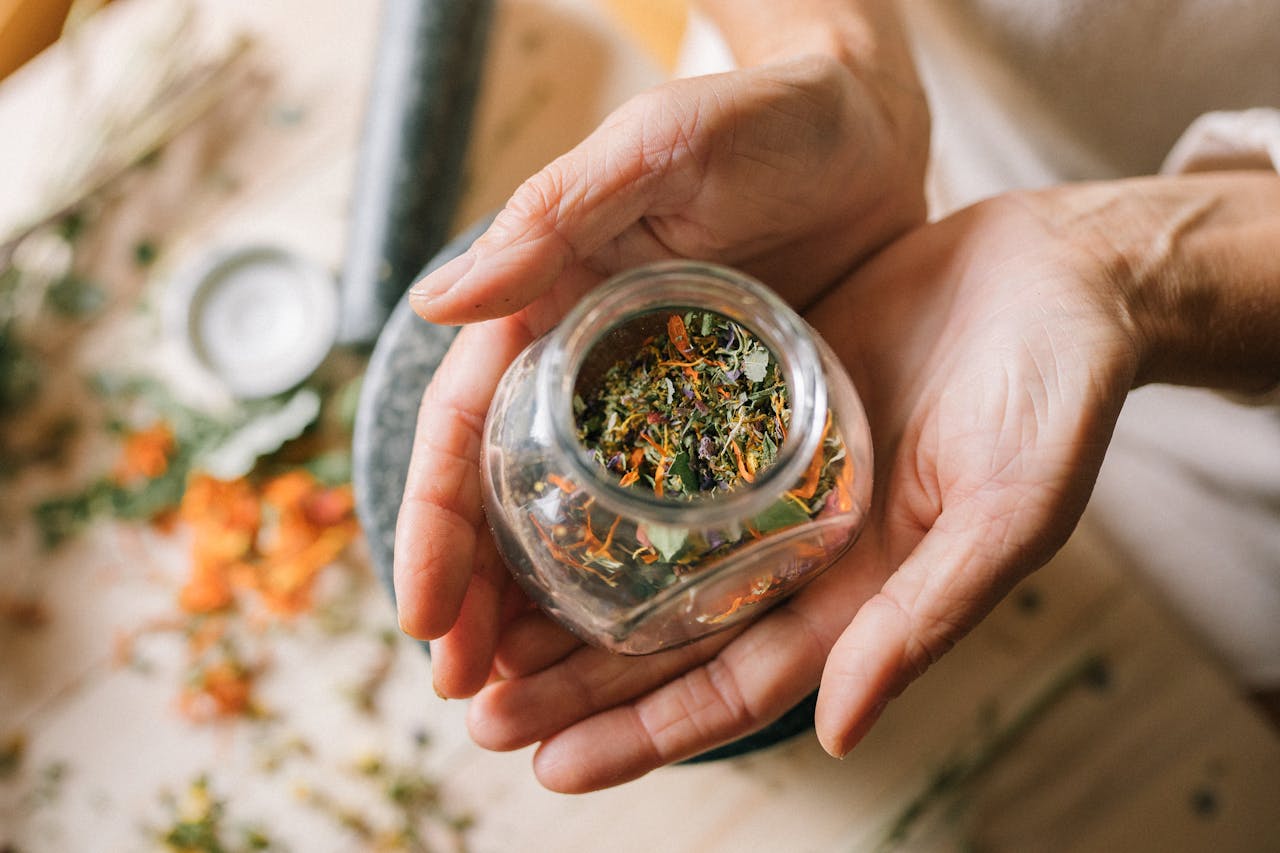
Do you want to know the most important step to long-term success in addiction recovery?
Hint: It’s not detox or treatment…
The truth is…
It’s what you do after treatment ends. That’s where continuing care comes in.
The problem with traditional addiction continuing care is…
It focuses solely on maintaining sobriety. But what about life after treatment? What happens when the “real world” hits again? Without proper continuing care, a whopping 91.2% of people with substance use disorders fail to receive adequate aftercare support.
But when you incorporate holistic methods into your continuing care program, that’s when the magic really happens.
Here’s what you’re going to learn:
- The Missing Ingredient in Traditional Addiction Continuing Care
- Holistic Addiction Continuing Care: The Mind, Body, and Spirit Connection
- Holistic Methods for Physical Wellness in Recovery
- How to Build Your Own Recovery Toolkit
Table of Contents
- 1 The Missing Ingredient in Traditional Addiction Continuing Care
- 2 Holistic Addiction Continuing Care: The Mind, Body, and Spirit Connection
- 3 Holistic Methods for Physical Wellness in Recovery
- 4 Holistic Methods for Mental and Emotional Healing
- 5 Spiritual Practices and Purpose
- 6 How to Build Your Own Recovery Toolkit
- 7 How to Make Holistic Continuing Care Work for You
- 8 The Bottom Line
The Missing Ingredient in Traditional Addiction Continuing Care
Traditionally, addiction continuing care is all about keeping you sober.
The problem is:
Addiction doesn’t just affect your brain chemistry. Addiction impacts your entire life: your physical health, your emotional state, your relationships, and your spiritual connection to the world around you. Traditional continuing care programs that focus solely on preventing relapse are neglecting vital pieces of your recovery.
Fortunately, recovery service providers like Red Ribbon Recovery Indiana recognize that addiction recovery is about more than just not using drugs or alcohol. They offer a holistic approach to continuing care that helps you address all the factors that impact your long-term success.
The best part is…
Holistic continuing care practices don’t replace traditional treatment, they enhance it. It’s not a matter of choosing between evidence-based treatment and a more holistic approach. You can do both.
Holistic Addiction Continuing Care: The Mind, Body, and Spirit Connection
Successful addiction recovery requires healing in every area of your life that substance use has damaged.
That’s why holistic methods work so well…
The mind, body, and spirit are not separate from one another. Addiction imbalances your natural state of wellbeing. Once the immediate issues are addressed in treatment, holistic continuing care programs focus on restoring that natural balance to set you up for continued success.
Here’s a question…
What happens when you only treat the addiction, but ignore the anxiety and depression, the physical health consequences, and the spiritual emptiness that you were medicating with drugs and alcohol in the first place?
Answer: Relapse.
This is why continuing care must support all aspects of your wellbeing. The research shows that continuing care interventions with the longer duration and most active involvement with providers produce the most consistently positive results.
Holistic Methods for Physical Wellness in Recovery
Addiction abuse takes a serious toll on your physical health.
Holistic continuing care addresses this by helping you to rebuild your physical foundation.
The most effective methods include:
- Nutritional counseling – Many people in addiction recovery struggle with nutritional deficiencies that affect mood and decision-making
- Regular exercise – Physical activity releases feel-good endorphins and helps reduce stress
- Sleep hygiene programs – Quality sleep is critical for emotional regulation and mental clarity
- Yoga and movement therapy – Yoga and other movement practices combine physical healing with mindfulness and meditation
But here’s what most people don’t realize…
Physical health is more than just a quality of life issue. When your body is healthy, your brain works better. Better brain function leads to better decision-making. Better decisions lead to lower relapse risk.
It really is that simple.
Holistic Methods for Mental and Emotional Healing
Emotional issues and mental health disorders are usually the underlying drivers of addiction. Holistic continuing care seeks to identify and heal those core wounds.
The most effective mental and emotional healing methods include:
Mindfulness and Meditation
Mindfulness meditation helps you observe and accept triggers, cravings, and emotional states without being overwhelmed by them. The regular practice of meditation can even change the structure of your brain to improve your emotional regulation and stress response.
Art and Creative Therapies
Art and creative expression can help you process emotions that are too difficult to put into words. Whether it’s painting, music, or writing, using creativity as an outlet for complex emotions is a powerful healing tool.
Nature-Based Therapy
Spending time in nature reduces stress hormones and promotes a sense of peace. Many holistic continuing care programs incorporate outdoor activities, gardening therapy, or wilderness programs.
The secret is…
Holistic methods aren’t meant to replace traditional talk therapy, they’re meant to enhance it. While CBT and other evidence-based practices teach you coping skills, holistic methods give you a variety of tools to work with as you face life’s challenges.
Spiritual Practices and Purpose
Here’s one thing that most treatment programs neglect to address:
Addiction can leave you feeling spiritually lost and empty. You may have lost your sense of purpose, meaning, and connection to a higher power or to the world around you.
Holistic continuing care incorporates methods to fill that spiritual void, such as:
- Meditation and prayer practices – Whether you’re religious or not, spiritual practices can provide grounding and perspective
- Service work and volunteering – Volunteering and helping others can provide a sense of purpose and build self-worth
- Connection to others and community – Building relationships with others in recovery and working to help each other heal
- Values clarification exercises – Identifying and connecting to what truly matters to you
Spiritual practices don’t have to be religious to be effective. Spirituality simply means finding meaning, purpose, and connection in your life.
How to Build Your Own Recovery Toolkit
The great thing about holistic continuing care is that it’s 100% customizable to your unique needs and interests.
Recovery is different for everyone, so your recovery toolkit should be, too.
Begin by asking yourself:
- Which areas of your life do you need the most support with?
- Are you struggling with physical health issues?
- Do you need more emotional coping skills?
- Does a spiritual void leave you feeling unmotivated?
- Are relationship issues contributing to your stress?
Then work with your continuing care providers to build a customized treatment program that meets your individual needs.
Remember:
Recovery is a lifelong journey. Your continuing care plan should be flexible enough to adapt as your needs change over time.
How to Make Holistic Continuing Care Work for You
If you’re ready to uplevel your recovery, here’s how to get started:
The first step is finding a continuing care program that offers a variety of holistic methods. Don’t settle for cookie-cutter approaches to addiction recovery. Look for a continuing care program that combines evidence-based treatment with holistic methods that address your physical health, emotional wellbeing, and spiritual practices.
Questions to ask include:
- Do they work with you to address all three areas of mind, body, and spirit?
- Can you customize your continuing care plan as your needs change over time?
- Do they provide ongoing support and aftercare after treatment ends?
- Do they include family members in the recovery process?
Most importantly: Choose a continuing care program where you feel like you are heard and supported. Recovery is difficult enough without feeling like just another case to be worked.
The Bottom Line
Holistic methods in addiction continuing care work because addiction impacts every area of your life. Cookie-cutter approaches just don’t work.
It’s only when you combine traditional addiction recovery services with holistic methods that address physical health, emotional wellbeing, and spiritual connection that you create a strong foundation for long-term recovery.
And here’s the best part: You don’t have to do this alone. A quality continuing care program can provide you with the support, guidance, and tools you need to build a life you actually love living.
Your journey may look different, but with the right holistic continuing care plan, you can write your own recovery success story.


